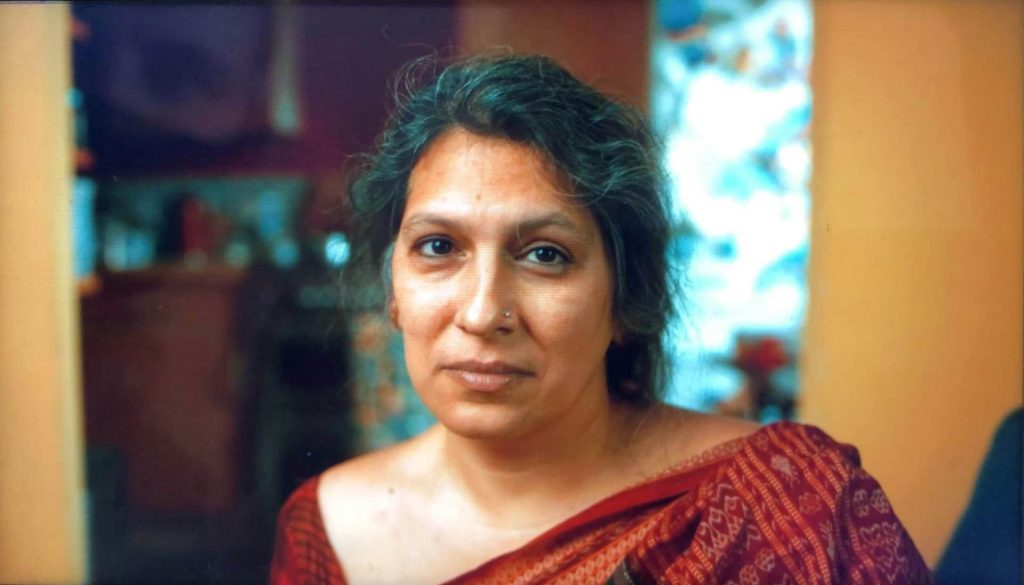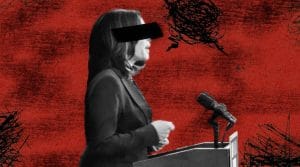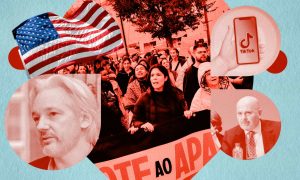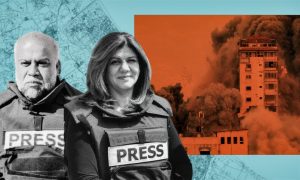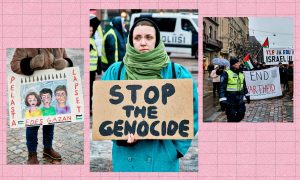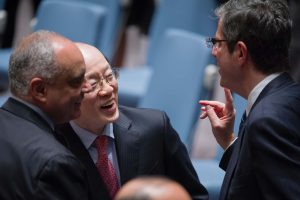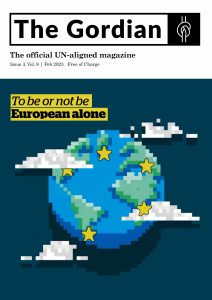Mridul Wadhwa, CEO of the Edinburgh Rape Crisis Centre, spoke with UN-aligned about her journey into the gender-based violence sector and ways to tackle conversion practices and promote LGBTQ+ rights worldwide.
My name is Mridul Wadhwa, and I am originally from India, and I’ve lived in Scotland since 2004. I started working in the violence against women or gender-based violence sector in 2005. With a small break in between, I’ve worked in that sector since then.
I primarily worked with minority ethnic women, immigrant women, and women from communities of colour living in Scotland. For most of that time, my job was to work with the white majority community, primarily service providers, to help them develop an understanding of what kind of barriers minority ethnic women in Scotland face when experiencing and leaving abusive relationships.
That work led me to working in the Rape Crisis movement. I’ve worked for the Rape Crisis National Helpline for Scotland by training staff and volunteers, and for four years now, I’ve been managing Rape Crisis services.
Mridul‘s work and experience on LGBTQ+
For the early part of my career, I can’t say with confidence that the experiences of LGBT people and their experience of violence were actively acknowledged in the work we were doing, particularly not in minority ethnic services. When survivors who identified as LBT or I came into our service, they would receive a service that wasn’t necessarily designed for their specific needs. It was person-centred, and if they felt they could tell us about their sexuality or gender identity, most of my colleagues would offer an inclusive service and acknowledge their identity. It was only until recent years, I would say in the last 7-8, that greater attention has been paid to how our services are acknowledging LGBT people and their experience of violence, which can be different to cis-gendered heterosexual, mainly white women.
The four organisations I’ve worked in have become much more explicit in saying, “we are inclusive and understand your experiences”. We are also working hard internally to make sure what we are saying externally is actually what we are doing through training programs, looking at policies, and developing specialist services, specifically for LGBT people. For example, one of the charities I had worked for, which is primarily for minority ethnic women, has applied an intersectional lens and has the only project of its kind in Scotland supporting minority ethnic LGBTI people who experience domestic abuse.
I think over the years, the work has become more explicit. We’ve done internal work within our organisations to ensure we are actually inclusive. This is an ongoing and unending piece of work because the achievement and sustainability of equality is a process, not an event. You cannot just say, “we are an equal organisation now”; you have to constantly question, reform, train, and learn so that you remain an inclusive organisation. It’s ongoing work, and every time you have staff leave and new staff come in, they may be in a different place when it comes to inclusion because, in most parts of our society, people are not thinking about the inclusion of LGBT people and their experiences of marginalisation and how we get rid of marginalisation.
It is hard work to keep inclusion on top of your agenda
It is our responsibility as organisations to do that work constantly. I cannot say that we always do it well, especially when in the sector I work in, we are often firefighting for the survivors of our work. It is hard work to keep inclusion on top of your agenda; it’s absolutely important, but it can quite easily be lost. You may work on it, and it may not be integrated into every decision you make, which is where I think it should be. Every organisational decision you make or every supervision meeting you have with a staff member or volunteer, you should be having conversations about “What has your last month, your last week or this case taught you about yourself? ” and, “as an inclusive professional or organisation, what have we learned about the emerging and changing needs of the LGBT community who are experiencing violence?”.
Combating conversion therapy and hate towards the LGBTQ+ community
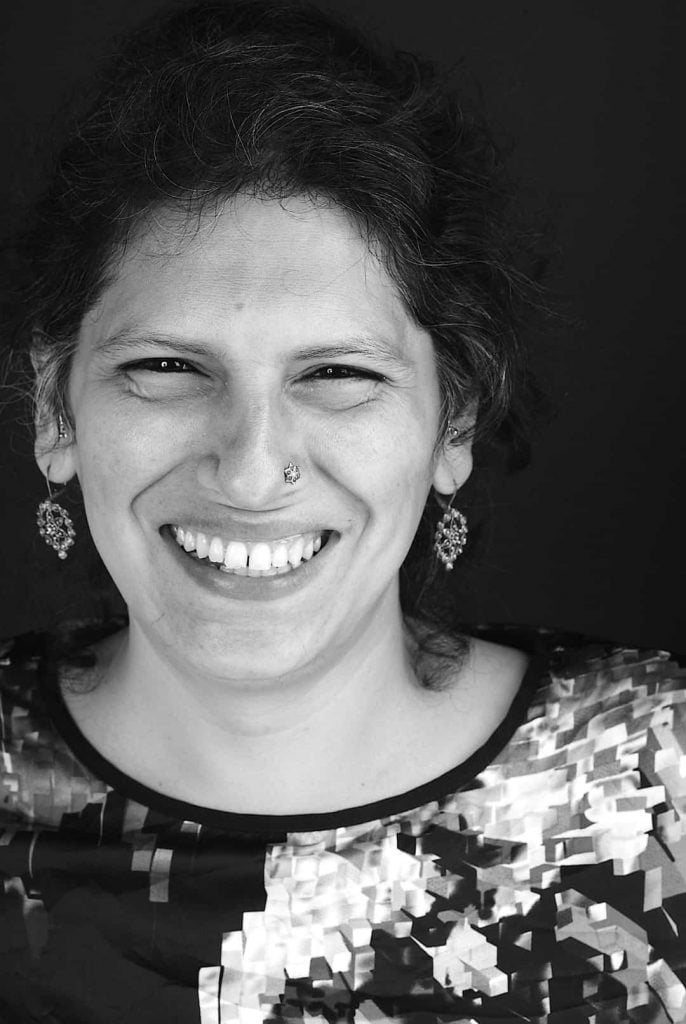
The reason conversion practices exist and are perpetrated against LGBTQI people is because the people perpetrating them do not acknowledge and believe them to be who they are. They don’t see you for who you are. They believe that your sexuality or gender orientation – if it is not heterosexual and heteronormative and cis – can be changed. But, they never seem to question why theirs cannot be changed.
In some parts of the world, the state perpetrates conversion practices. But in this Scottish context, conversion practices often happen in religious situations under the guise of faith and religion. When it comes to trans people, I think there is still a belief among some who practice therapy that people who are trans can be talked out of their transness. They often use the excuse of age to believe that you will outgrow your transness.
I think that sometimes being trans is a beautiful, complex experience, and the trans experience – being a trans woman myself– can be reduced by some to gender expression. And so, being trans to them means that you want to wear different clothes or look different, but I think it’s something more intrinsic to our souls that is not acknowledged. Because it’s not acknowledged to be something deeper than how we want to dress and seen as something physical and external – because that is the story being told about trans people, I think – that some people think we can change the minds of young trans people and they may rely on what we see as psychotherapy – what should be seen as illegitimate psychotherapy – to do that. There is this perception that people outgrow their transness, and that is not true.
Making supportive resources and mental health services more accessible to the LGBTQ+ community
I think there are a number of things. The easy place to start is by, first of all, being explicit that you’re a safe space. Also, beyond the statement of being explicit, demonstrating that and how you know you are a safe space for LGBTQI people whether they have experienced conversion practices or not.
As I said earlier, there is a lot of work that each service has to do. One is to make public statements about where they stand. The thing is, as a minority who experiences oppression – and I can speak from my own experience and how I have experienced working with other minorities who have experienced oppression in their societies – is that you assume a place that does not acknowledge you at all is dangerous. So while a place may not think it is dangerous, they have not said, “we are anti-racist, or we are trans-inclusive”, and if you have not said it, I am going to assume you are dangerous.
And that requires work and working with LGBT organisations that exist to help you become inclusive. You need to build strong partnerships with communities and organisations and maybe individuals, if that is appropriate, who can advocate not in crisis, but in times of peace, for how you can be inclusive—so getting the voices of LGBT people into your organisation, your structures, and reforming your structures and systems, so you are not marginalising.
I think that is the work that needs to happen, and as I said in the beginning, it is work that is ongoing. You may reach a milestone and pause, but that is not an ending. In Scotland, many organisations receive a charter mark after doing a lot of work with an LGBT organisation which says, “This is a safe space where enough work has been done in the systems, processes, procedures, and with the attitudes of the people that are involved within this organisation. This is a place you can go.” And often, what happens is you pause, but actually, for some, it is a stop. So you need to keep doing this work all the time.
I think there is also a space for specialist and mental health services that are run by LGBT communities for LGBT communities. While all spaces should be open to people from marginalised backgrounds, there is still a need for those specialist spaces because when there are services run by people who are from the community and have a much deeper understanding of the issue, then the quality of the service is much better. There is greater confidence and more engagement. So I am a great believer in creating and funding specialist services run by and for LGBT people. And that should be a part of any project and society because that expertise and innate knowledge make it much easier for someone to open up and heal.
Tackling conversion therapy and securing LGBTQ+ rights at the at the United Nations
We should have reached a stage in world culture and history where LGBTQI lives are not up for debate, our existence is not questioned, and the reality of who we are should not be doubted. That should be a key principle of the UN, and it’s something you should sign up to if you want to continue to be a member and benefit from it. I don’t think there should be an exception, and maybe that is a radical position, but I think it’s actually a human rights position because no matter how much you try to say we do not exist in our society, we do. Unless that happens, I am not too sure what the UN can actually do.
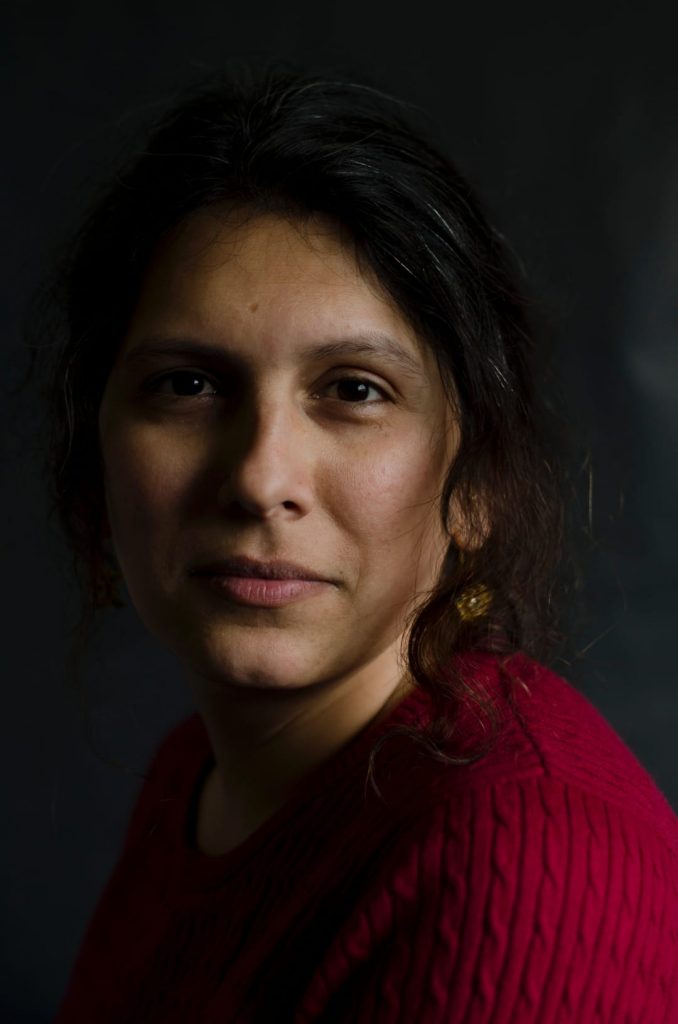
I think the UN should put in resources to support NGOs in hostile countries to support LGBTQI people. I am not too familiar with the UN, but I am thinking of a similar process we have here in Scotland. Our biggest funder is the Scottish government for the Rape Crisis service I work in. For some of the funding we received from the Scottish government, one of the submissions that had to go with our application was to submit a plan on how we would be LBTI inclusive in our services. So I think that is the least the UN can do in asking countries.
What happens with those reports?
And they have the UN special rapporteur in violence against women and a rapporteur for LGBTQI rights talking about the LGBTQI state of the people in those countries, but what happens with those reports? I know that they have high-level conversations with governments, but I think it should also be supporting a grassroots movement where those countries are hostile. We must work towards clearly recognising and putting pressure on countries that accept refugees to acknowledge that the risk of conversion practices – state-sponsored or otherwise, even in a sort of family context – should be grounds for granting some refugee status.
Creating systemic and attitudinal change
It depends on what resources and influences you have. The most important thing is telling the stories of individuals and suggesting practical solutions, not just to governments or international bodies but also to those of us who are electing politicians. What can you do in your sphere to create systemic and attitudinal change? What are the questions you should be asking politicians about LGBTQ+ rights? Even if they are city councillors, they make important funding decisions.
I think there are many targets here. One is how do you tell states to change their systems and laws? How do you tell devolved and local governments to think about who they are funding and why they are funding them? How do they make sure they are inclusive in the decisions made? For example, the city of Edinburgh council has just adopted an approach of gender budgeting, so they are making budgetary decisions that look at its impacts on women and men. Why can we not have something similar in decision-making for minority groups, LGBTQI people and racial minorities? We need something that is embedded in your systemic decision-making.
Thirdly, how do we empower individuals in society to influence their own communities? Whether through politics or through people, what can they do to ensure LGBTQI rights are safeguarded?
The Edinburgh Rape Crisis Centre
So the Edinburgh rape crisis centre I work in is set up to provide support to all women, girls, all trans, and non-binary people over the age of 12 who have experienced sexual violence. Some of our services are open to male survivors, and we hope that our services will be open to all genders in the future.
I have been working here for only the last two years. The centre has been trans-inclusive for over ten years. It was one of the first rape crisis centres in Scotland to declare themselves publicly as accessible to all trans people, which is quite significant for this country and the Rape Crisis movement in this country.
Interviewer: That is great to hear, and I always think that change toward inclusivity is amazing. It is something that many organisations need to work on, but it is always nice to hear when organisations have made that move. Even if you are the first to do it, that is a step forward.
Mridul: Yes, and by no means do we have it right. We still make mistakes around this, but we are actively interested in learning from mistakes and also just improving; you do not have to make mistakes to improve. We have created spaces within our organisation collectively but also individually to reflect on the inclusion of all minorities, which I think you have to have a specific lens for different groups, and you have to take an intersectional view.
An intersectional view for me is people of colour and the intersectionality that they experience because of other marginalised identities they have. So it is important to be intersectional, but that does not mean – as some people think– all lives matter. That’s not what it means. There are specific lenses and specific groups of people, and when there are a number of marginalisations, you need to know enough about all of those to understand how it’s impacting people with intersecting identities.
Interviewer: Thank you so much! You have been so helpful and kind. I am very grateful.
- Mridul Wadhwa is the CEO of the Edinburgh Rape Crisis Centre
- This interview was recorded on the 26th of July 2022.
- In the UK and Ireland, Samaritans can be contacted on 116 123 or email [email protected] or [email protected]. In the US, the National Suicide Prevention Lifeline is 1-800-273-8255. In Australia, the crisis support service Lifeline is 13 11 14. Other international helplines can be found at www.befrienders.org
- Rape Crisis Scotland Helpline 5pm-midnight every night: 08088 01 03 02



